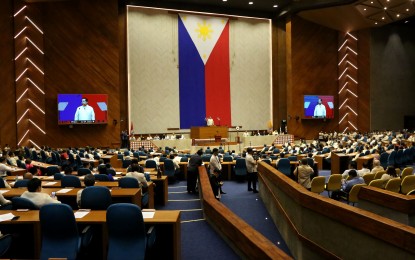
File photo
MANILA – The House of Representatives on Wednesday approved on second reading a measure that would institutionalize the Expanded Tertiary Education Equivalency and Accreditation Program (ETEEAP).
During the plenary session, lawmakers passed through voice voting House Bill 9015, which would provide Filipino citizens an avenue to complete and finish their college education and allow them to harness and maximize their full potential in their respective fields.
TINGOG party-list Rep. Yedda Marie Romualdez, an author of the measure, said the ETEEAP was introduced in 1996 by virtue of Executive Order 330, signed by then President Fidel V. Ramos.
Romualdez said it is a comprehensive educational assessment program at the tertiary level that recognizes, accredits and gives equivalencies to knowledge, skills, attitudes and values gained by individuals from relevant work.
"In institutionalizing the program, the State would be able to uphold, commit, and follow its constitutional mandate of protecting and promoting the right of all citizens to quality education and of establishing, maintaining, and supporting a complete, adequate, and integrated system of education relevant to the needs of the people and society," Romualdez said.
Through this program, TINGOG party-list Rep. Jude Acidre said an individual may be granted a diploma for a degree after a competency-based evaluation from an established assessment system employing written tests, interviews, skills demonstration, portfolio and other creative assessment methodologies administered by designated assessors or faculty experts.
“There is a need to provide individuals with proven competence access to opportunities that will increase their prospects for inclusion in the labor market, prepare them for higher value jobs required for achieving global competitiveness, advancing the strategic concerns of the government and promoting sustainable development,” he said.
The bill specifies that the applicant must be a Filipino citizen, at least 23 years of age with at least 5 years of work experience.
Other requirements to qualify for the program include the birth certificate issued by the Philippine Statistics Authority; resume, curriculum vitae or personal data sheet; duly accomplished ETEEAP application form; service record or employment certificate signed by the employer; job description signed by the employer; and transcript of records.
The Commission on Higher Education shall be the lead agency in the implementation of the proposed law.
It shall accredit colleges and universities that seek to offer the ETEEAP as part of their academic program. (PNA)
